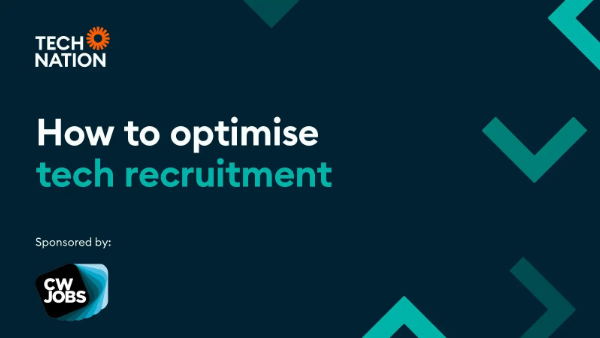How to Interview for Sales Roles

It’s no question that without a sales team, just about any company would grind to a halt - and fast. With the boom in hiring, the demand for top talent is fierce. Whether you’re looking for a new Sales Development Representative or to bring on a VP of Sales, it’s important to know how to engage with a range of potential candidates.
The interview is your chance to vet a potential new hire and see if they have the skills, personality, and experience to excel in the role.
But what steps can you take to make sure you're asking the right questions and covering all the bases? Let’s take a look.
The “right stuff” for sales
First and foremost, sales teams need to be knowledgeable about the products they're selling. This means having a deep understanding of how the product works, its features and benefits, and how it fits into the larger ecosystem. They also need to be able to articulate this information clearly and concisely to potential customers.
In addition to product knowledge, your sales team needs strong people skills. They must be able to build rapport quickly, identify customer needs, and overcome objections. And work well within a team, collaborating with other members of the sales force.
Finally, they need to be driven and self-motivated. They need to be able to set and achieve goals, and work independently to reach them and stay organised, keeping track of the sales pipeline. While these might sound like obvious qualities to look for in a potential candidate, remember that the best option has a blend of skills and not just one star quality.
Some key qualities to look for in a sales person are:
- Curiosity: The tendency to identify, question and pursue answers
- Feedback: The desire and ability to receive and quickly process feedback
- Motivation: Comfort in understanding what truly motivates themselves and others
- Listening: The ability to listen for why, in addition to what, how and when
- Empathy: The ability to sincerely and authentically identify with a prospect’s emotions
- Closure: The ability to know when to hang on and when to let go
- Growth Mindset: The outlook that enables increased levels of achievement
- Timing: The understanding of when urgency is required and when to be patient
20 questions (or 10)
Sales experience is critical for any business, yet the skills and experience necessary for success can vary greatly from one industry to the next.
Asking the right questions during the interview process is essential for uncovering a candidate's true sales abilities.
Here are some key questions that Hubspot use when interviewing candidates for sale roles to to get a better sense of their sales experience and skills:
1) How do you keep up to date on your target market?
What to look for:
“Even if the target market of their last job is totally different from the one they're interviewing for, this will show their ability to find and keep up with relevant trade publications and blogs. Dig deeper and ask for a recent piece of information they've learned from one of the publications.”
2) Explain something to me.
What to look for:
“While this technically isn't a question, it's important to assess whether the candidate can effectively walk someone through a concept or process. Listen to see how clearly and concisely they can explain the topic.”
3) In your last position, how much time did you spend cultivating customer relationships versus hunting for new clients, and why?
What to look for:
“Certain companies and roles call for people who are better at farming or hunting, but you should lookout for a person who performs one of these tasks to the exclusion of the other. Both are vital to sales.”
4) What are your favourite questions to ask prospects?
What to look for:
“Good salespeople spend more time asking questions than pitching. Look out for open-ended questions that will help a rep thoroughly understand a prospect's needs.”
5) What's your approach to handling customer objections?
What to look for:
“Preparing to deal with objections — instead of winging it — is critical. Listen for evidence of a process.”
6) What role does social media play in your selling process?
What to look for:
“Social selling is becoming more important in all industries. If the candidate has not used social channels to research prospects or look for leads in the past, make sure they have a willingness to learn.”
7) What role does content play in your selling process?
What to look for:
“Again, it's not necessarily a deal-breaker if the salesperson doesn't actively share and engage with content on their social media accounts, but they should be receptive to doing so.”
8) How do you research prospects before a call or meeting? What information do you look for?
What to look for:
“Neglecting to use LinkedIn to research clients is not a viable option in today's sales environment. Ensure that candidates are searching for personal commonalities in addition to professional information so they can tailor communication as much as possible. Looking into company trigger events would be the cherry on top.”
9) If you were hired for this position, what would you do in your first month?
What to look for:
“The answer to this question doesn't have to blow you away. However, the candidate should have some sort of action plan to get started. No matter how much training you provide, it's still smart to hire a self-starter when you can.”
10) What do you think our company/sales organisation could do better?
What to look for:
“This sales interview question serves two purposes: it shows how much research the candidate did before meeting with you, and it demonstrates their creative thinking and entrepreneurial capabilities.”
Evaluating candidates and potential fit
As the interview process comes to a close, it is important to take a step back and evaluate the candidate as a whole. This is especially true when it comes to sales roles, as these positions can be critical to the success of your company. When going through your notes after the answers from the candidate, consider the following areas to see if they matched the required rating to fit the role.
- Their ability to sell themselves. During the interview, did the candidate do a good job of selling themselves? If they struggle to articulate their own qualifications, it may be an indication that they will struggle to sell your product or service.
- Their ability to connect with you. In sales, it is important to be able to connect with potential customers. Did the candidate seem like someone you could see yourself doing business with? If not, they may not be the best fit for the role.
- Their ability to handle objections. In any sales situation, there will be objections. Did the candidate handle objections well during the interview? If they seemed flustered or unable to come up with a good response, it may not be a good sign for their sales ability.
- Their overall attitude. Sales can be a tough job, and it is important to have a positive attitude. Did the candidate seem like someone who would be able to maintain a positive attitude even when things are tough? If not, they may not be cut out for a sales role.
- Their questions for you. At the end of the interview, did the candidate ask any good questions? If they did not, it may be an indication that they are not truly interested in the role or the company.
Final feel and checking culture-add
When it comes to hiring, one of the most important factors to consider is culture-add.
After all, you want to make sure that the candidate you’re bringing on board is someone who makes a positive addition to your company culture.
There are a lot of ways to assess culture, such as paying attention to how the candidate speaks about their previous experiences and looking out for any red flags or negative attitudes.
Seeing how the candidate interacts with you and the other members of the interview panel to test if they would work well in the team environments and wider company life. Though, the most important element after feedback from other panel members is your gut instinct.
Sometimes, you just have a feeling about whether or not someone will be a positive addition to your company’s culture. And when that sometimes rolls by, it’s usually right. If you have any doubts, it’s probably best to err on the side of caution and keep searching.


